Real-life stories from others give us a shared perspective that can trigger new ideas and launch us in different directions. It’s common for those new to a career to ask for advice, and many find the thoughts of an expert to their younger selves valuable. In this article, Katrina shares seven work- and life-improving insights, some of which she’s still working on perfecting.
The post about my journey has proven popular. Subsequently, others have asked me to share a few thoughts which would have benefited my younger self. Regular readers will not be surprised that I’ve found several of these ideas in my readings. Greg McKeown succinctly captured the first four in his book “Essentialism: The Disciplined Pursuit of Less,” so I’m quoting his points and adding my perspective. If these four resonate, you will benefit from reading the sixteen other essential ideas in Greg’s book. Number five is a crucial concept shared by Tara Mohr in “Playing Big: Practical Wisdom for Women Who Want to Speak Up, Create, and Lead,” a book well worth reading for additional practical wisdom. The final two are from my own experience, and I hope you will find them thought-provoking.
1. “I choose to. . .” – Greg McKeown
The most important piece of advice I can give is we always have the power to choose. Even choosing to use this power is a choice. Stephen R. Covey notes in “The 8th Habit” that the freedom to choose is our first and most incredible gift. Options exist, whether we see them or not. Our genes, upbringing, and environment have a powerful influence on us, but we are each capable of choosing the direction of our lives. Your choices need not be constrained by what others say or feel about you. There will always be someone around to tell you, “You can’t do that” or “It won’t work.” You can be the person who proves they are misinformed about what is possible.

2. “Only a Few Things Really Matter” – Greg McKeown
Greg’s observation seems like a simple statement; however, it demands that we exercise our power to choose to decide what matters to us. Greg notes in his book that priority used to be only a singular word. Others will try to convince us that their preferences should be ours. You will naturally consider the thoughts of those who hold important roles in your life, but you are the only one who can determine who or what matters to you.

3. “I Can Do Anything, But Not Everything” – Greg McKeown
Trade-offs are inherent in choices. Greg puts it this way, “Saying yes to one choice means we are saying no to another.” Everything from the trivial (soup or salad?) to the transformational (get married or stay single? Stay in my current job or find another?) requires leaving options to pursue others. It’s tempting to think we can do it all, but not everything can be yes. Trade-offs can also be complex or not immediately apparent, encouraging us to be more thoughtful when presented with one. However, we should be forthright about acknowledging the trade-offs we see and learning from those we miss.

4. “Protect the Asset” – Greg McKeown
Greg uses this quote in a chapter about sleep, but it applies to every physical or mental health aspect. If you aren’t functioning correctly, you won’t be ready to participate fully in your life. Poor health will hamstring your efforts and intentions more than any other choice you make. I’m not suggesting you become a fitness nut or obsessive about health. However, we can all make better choices, and our doctors can help us learn about and take simple steps forward to better health. Caring for yourself is critical for parents, leaders, and anyone on whom another relies. It’s the reason our airplane crews tell us, “Put your oxygen mask on before helping others.”

5. Remember that Feedback Reflects the Giver (concept from Tara Mohr)
Feedback can help you learn something about the audiences you are trying to reach and influence. However, it would be best if you didn’t let any feedback dominate your thinking or choices, whether negative or positive. Expect criticism as you continue to grow. Don’t depend on the praise of others. Your best response to any feedback is to thank the giver for their perspective. Weigh what they’ve shared alongside your knowledge of their background. Ask others for their opinions and advice, and do your research. Lastly, when you share a comment with others, consider your motives and experience and let them temper your observations.

6. Don’t Work So Hard
It took me a long time to learn this point, though I received this wisdom early on. In my college radiochemistry class, the professor assigned a problem that involved several calculations. I was diligently methodical, working through the steps, but got stuck on the last part. When I stopped by his office later that week, he showed me how my answer was unlikely, given the physics of the isotopes. He then pointed out how much effort I had spent on the solution so far and gave me the best advice from my university experience: “If you think you are working too hard, you probably are!” A work product does not need to be perfect to work. Conceding an effort is good enough can release us from tedious repetition to achieve a higher score. Sometimes the right choice is to step back and look for alternate ways to achieve your objective.

1. Find Ways to Pay It Forward
Regardless of your career, you will find that being helpful to others yields personal benefit. I’m not suggesting you become a doormat or do others’ work for them. Instead, it would help if you considered their goals when trying to achieve your own. For instance, if you want to get promoted, you need to demonstrate how you contribute to your company. Your boss has business and professional goals, so ask them what you can do to help achieve those goals. Think of networking events as opportunities to help others meet their objectives. As you grow in your role, younger people will ask for career advice, and you may find these opportunities to be some of the most rewarding (but don’t forget point 5)!

These are the seven reflections I think would benefit my younger self. I’m still working to actualize several of them (including not working so hard). Earlier this month, I spoke to someone moving to Spokane for his MBA and participating in our dynamic life science ecosystem. I shared point 4 with him during the conversation, and I hope he (and you) have enjoyed the entire set.
If you enjoyed this article and would like to read more by Katrina, sign up for her newsletter.
